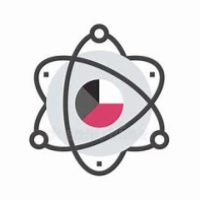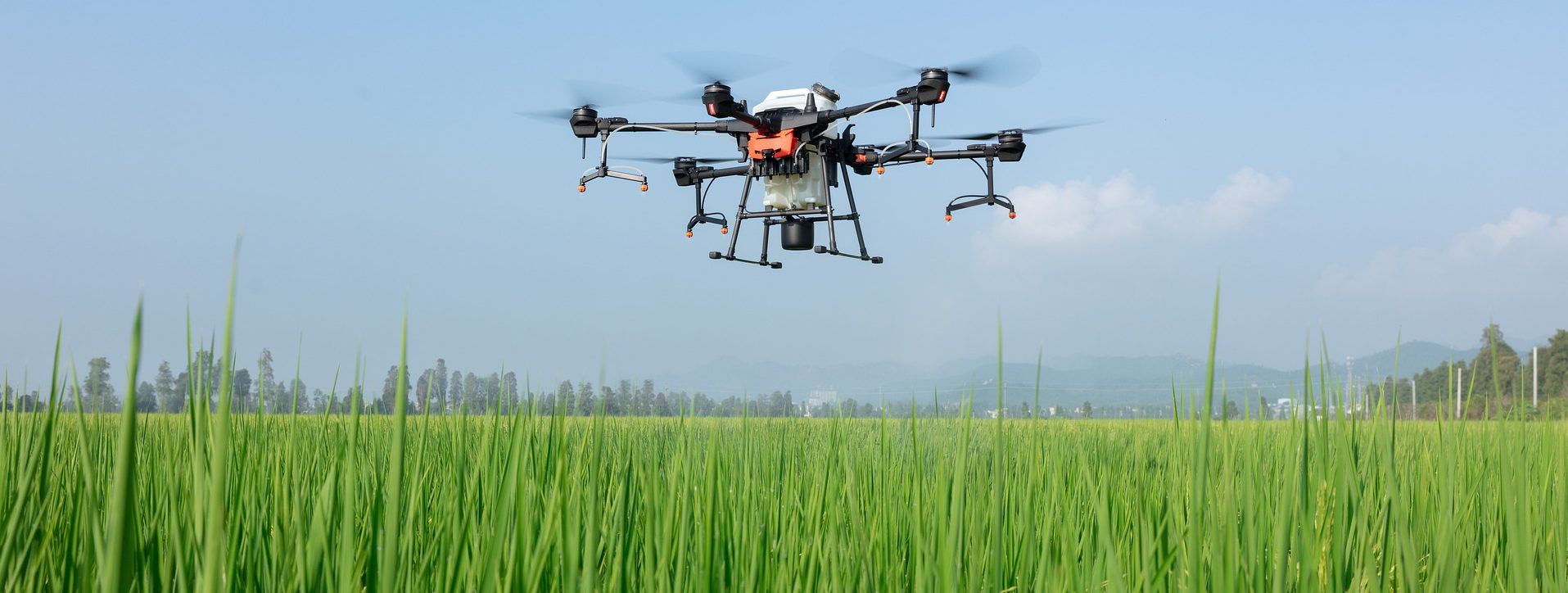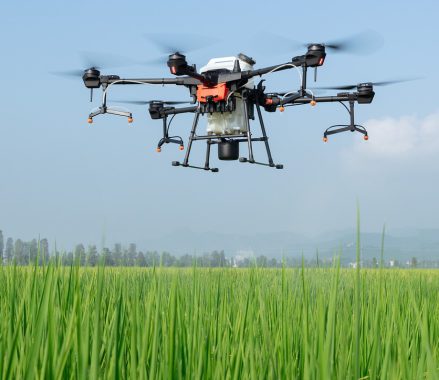Born and raised on a small-scale Swedish farm, I thought I knew what agriculture was. Fetching the cows, harvesting fodder, and even the part using technology – such as handling the milking machines and turning on the manure removers. But apparently, I had no idea.
Listening to the podcast Alliance for Science Life’s episode Digital Agriculture: Harnessing data for global development, it becomes painfully clear that my thoughts on what agriculture is are disturbingly obsolete today. In the episode, Dr. Susan McCouch, Head of the Cornell Institute of Digital Agriculture (CIDA) in New York, tells me that many farms today have sensors that automatically measure the soil water content, satellites surveilling the crop development, soft robots taking care of the harvest, and photos of plants delivered into cloud databases using algorithms and artificial intelligence (AI) to advise farmers on when to fertilize, use pesticides and irrigate.
To watch a recent video from CIDA, please view below:
From Top Down

In the discussions between the podcast host and the Head of CIDA, many international development issues are raised. This is of course natural, since agriculture itself is a field relevant for many of the SDG’s, not least Zero hunger, Good Health and Well-being, Climate Action and Life on Land. Dr. McCouch and the host for example discuss the importance of inclusion. This is a relevant angle, considering that Dr. McCouch is a white, highly educated middle-aged woman based in New York, whilst many of the beneficiaries of her work are situated in the global South. What I can see in this relationship is the risk of power bias. In other words, a risk that comes with the fact that the technology is developed by those living in the global North while the inhabitants or consumers of the technology are mainly in the global South. This phenomenon, but focusing instead on the ICT-roles, was described in a very educational model by ComDev author Richard Heeks in his 2017 book Information and Communication Technology for Development (ICT4D). This is a well recommended read. (The model I’m referring to is figure 2.9)
The Risks of Biased Data
However, Dr McCouch is aware and concerned about these risks. She for example underlines that they, in their work, are concerned about the risk of biased data leading to the wrong outcome. If women don’t own cell phones, the data they receive through that channel will only represent men. And how to make sure that the outcome is beneficial to the individuals in the region where they reside, that the increase of their harvest actually leads to themselves getting more food on their dinner plates? That the increased harvest due to new technology doesn’t only lead to increased exports of food?
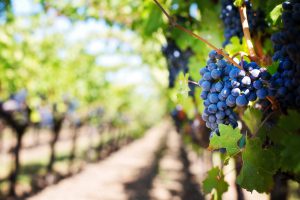 While being a motor for advancements in high-tech agriculture, Dr. McCouch says that the Institute is highly aware that different regions have different possibilities of using digital technology. She takes an example about vineyards, saying that Napa Valley in California of course is much further ahead in using robotics for grape harvesting than small-scale growers in upstate New York. The more evident example would perhaps be that farmers in the global North use drones and AI for their crops, while those in the global South still use oxen to plow the fields.
While being a motor for advancements in high-tech agriculture, Dr. McCouch says that the Institute is highly aware that different regions have different possibilities of using digital technology. She takes an example about vineyards, saying that Napa Valley in California of course is much further ahead in using robotics for grape harvesting than small-scale growers in upstate New York. The more evident example would perhaps be that farmers in the global North use drones and AI for their crops, while those in the global South still use oxen to plow the fields.
From Information to Impact
For those of you who have read my blog co-author Rick’s last post, it will come as no surprise that for example satellites and AI can be used for international development in numerous ways. But as he also points out, it’s not all good news as users need to be cautious that the technology doesn’t lead to more harm than good. In the podcast, Dr McCouch emphasizes that her Institute has a model for making sure that they keep on the right track in their work. The following key phrases are leading them:
- They start by understanding and diagnosing how the environment works and how to manage it in an eco-system-friendly way, working with biology instead of against
- They predict outcomes based on the input they are planning to add.
- They target interventions with the aim to create more stable food systems to promote animal, human and environmental health
- And finally, perhaps most importantly, they measure impact through comparisons or benchmarking of other initiatives which will help them draw lessons and improve in the future.
This model allows them to know that they are doing what they should, and that the outcome becomes what was intended. I must say that this reminds me of the importance for anyone, not least me working as a Communications Manager, of planning and follow up on the work one does. To sometimes take a pause and make sure that you’re following the intended path. Don’t you agree?
Interesting podcast
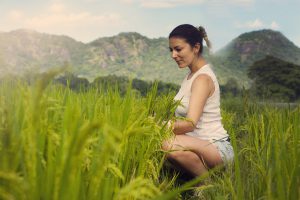 I can truly recommend this podcast to anyone interested in Digital Agriculture, a field of science which definitely can lead to important advancements in empowering farmers in low-income countries and increased food security for vulnerable communities. A very interesting part of the discussion was when I learnt that digital agriculture has high potential in leading to more young people staying in the rural communities or even leaving the cities since they are attracted by working with this new technology and see the opportunities it brings.
I can truly recommend this podcast to anyone interested in Digital Agriculture, a field of science which definitely can lead to important advancements in empowering farmers in low-income countries and increased food security for vulnerable communities. A very interesting part of the discussion was when I learnt that digital agriculture has high potential in leading to more young people staying in the rural communities or even leaving the cities since they are attracted by working with this new technology and see the opportunities it brings.
However, in this talk, I do miss the perspective of the beneficiaries of the science. I would like to hear how the institute include the small-scale farmers in their research and how they make sure that the technology they contribute to develop matches what the farmers themselves ask for. And wouldn’t it be fairer to help the poorest countries to build this capacity and knowledge themselves, giving them the power to develop their agriculture in a scientific way on their own terms instead of focusing all the brainpower, and thereby the power of decisions, to the rich countries?
Not any easy questions I’m throwing at you this afternoon but let me know what you think!
